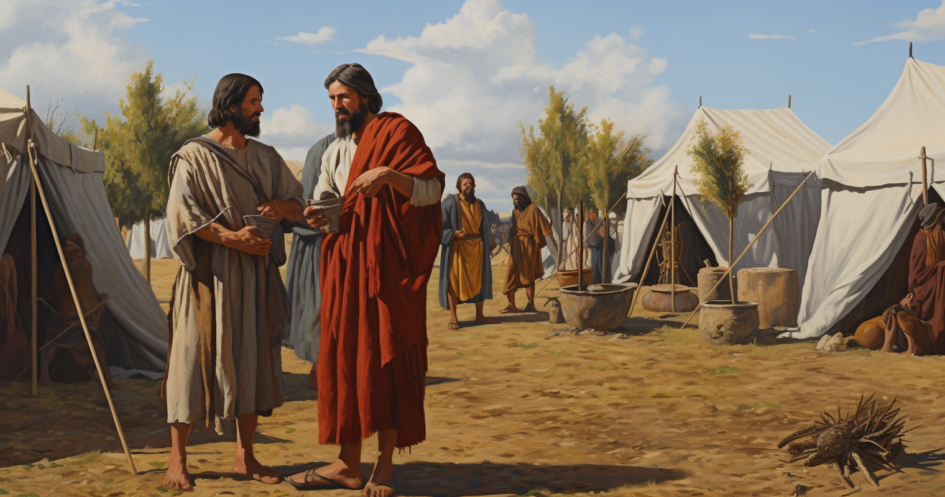Old Testament
In the Old Testament, we find instances of intercession, where prophets and patriarchs pray for the people. Moses is a prime example, interceding for the Israelites on multiple occasions (Exodus 32:11-14).
2 Maccabees 15:14-15 – In this passage, the prophet Jeremiah, who had passed away, is seen praying for the Jewish people, demonstrating the intercession of the deceased.
Hebrews 12:1 – “Therefore, since we are surrounded by so great a cloud of witnesses, let us also lay aside every weight, and sin which clings so closely, and let us run with endurance the race that is set before us.” This implies that those who have gone before us are aware of and involved in our spiritual journey.
New Testament
In the New Testament, Jesus Himself engages in intercessory prayer, especially in the High Priestly Prayer (John 17:9-26). Paul, too, often speaks of praying for the members of the early Church (Romans 1:9, Ephesians 1:16).
The key verse that supports saintly intercession in the New Testament comes from Revelation 5:8, “And when he had taken the scroll, the four living creatures and the twenty-four elders fell down before the Lamb, each holding a harp, and golden bowls full of incense, which are the prayers of the saints.” The text shows that saints in heaven offer our prayers to God, represented by the “golden bowls full of incense.”
Revelation 8:3-4 – “And another angel came and stood at the altar with a golden censer, and he was given much incense to offer with the prayers of all the saints on the golden altar before the throne, and the smoke of the incense, with the prayers of the saints, rose before God from the hand of the angel.”
Tradition and the Early Church
From the early days of the Church, Christians sought the intercession of saints. We find evidence in the writings of the Church Fathers, like St. Augustine, who said, “A Christian people celebrate together in religious solemnity the memorials of the martyrs, both to encourage their being imitated and so that it can share in their merits and be aided by their prayers” (Against Faustus the Manichean, Book 20, Chapter 21).
The Communion of Saints
The idea of intercession is intrinsically linked to the Communion of Saints—a spiritual union comprising the Church Militant (us on Earth), the Church Suffering (souls in Purgatory), and the Church Triumphant (those in Heaven). We are all part of one body (1 Corinthians 12:26-27), and when one part suffers or rejoices, all parts are affected.
 The Libertarian Catholic
The Libertarian Catholic
















